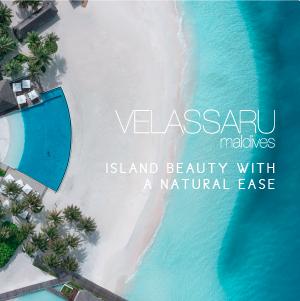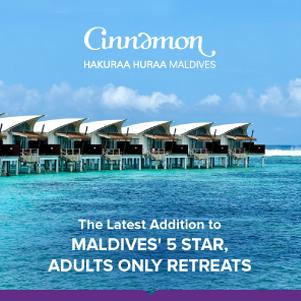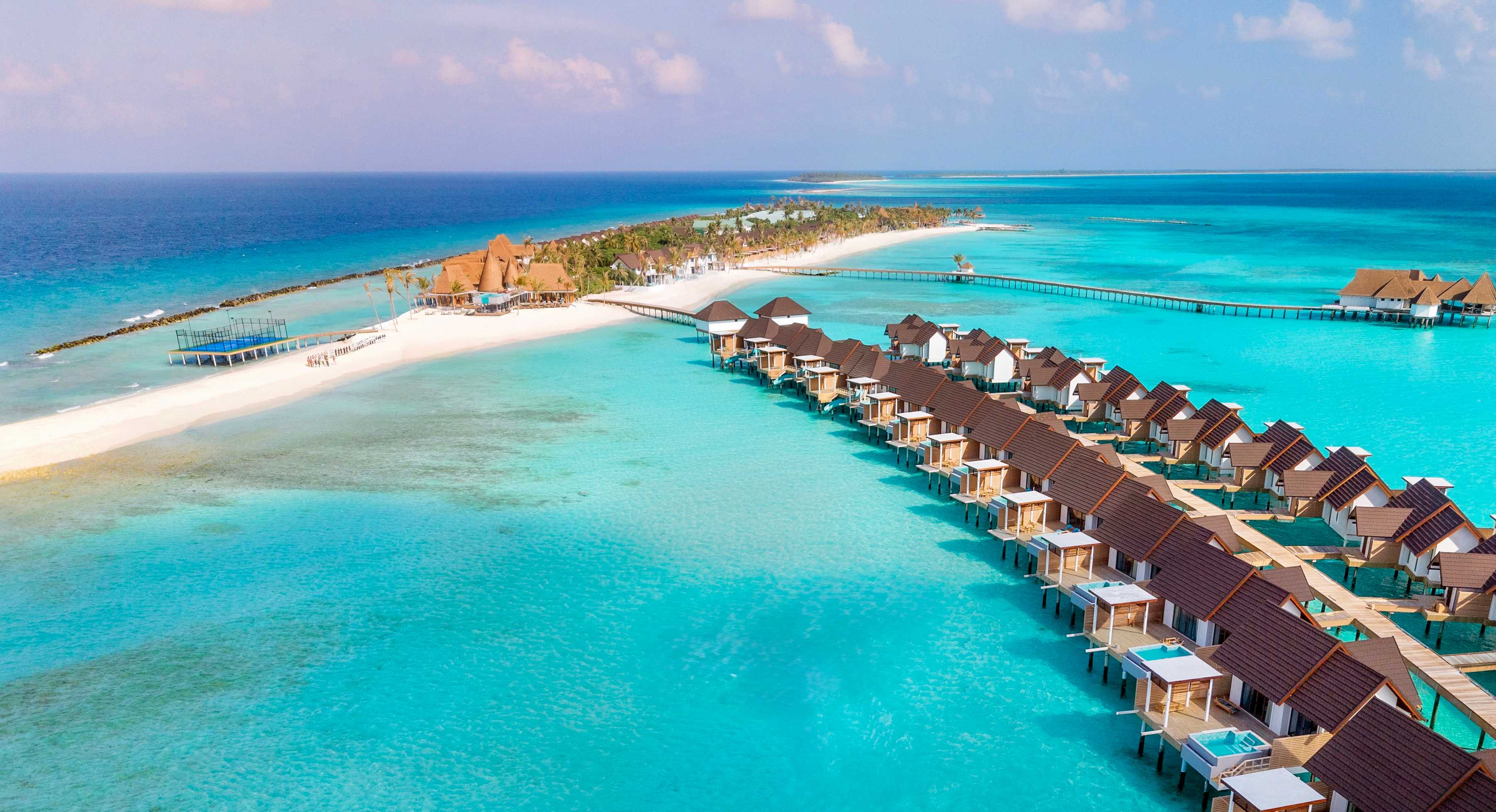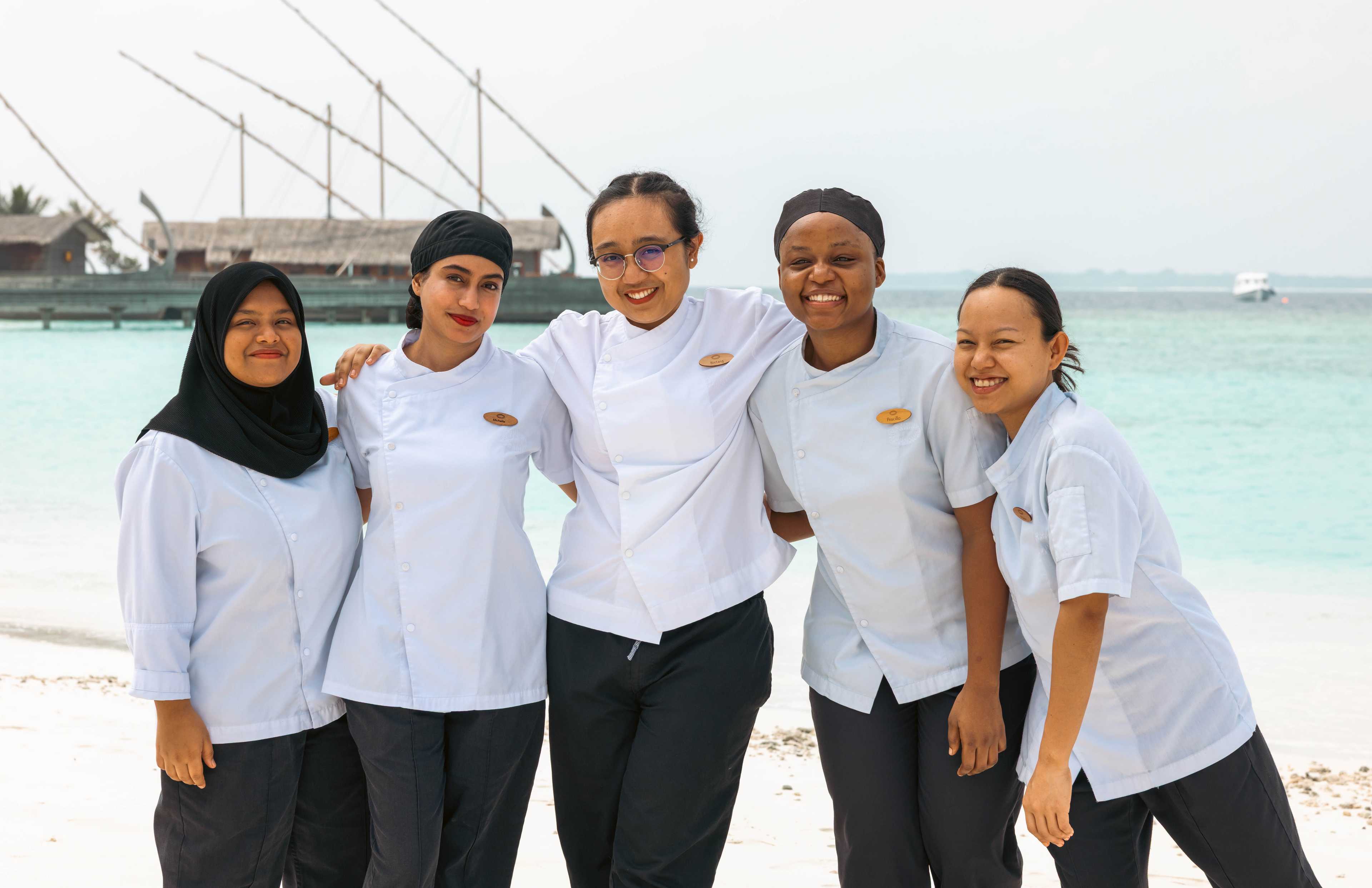4 DECEMBER 2022, BAA KIHAADHOO:
The presidents of eleven islands in Baa, Noonu and Haa Dhaalu atolls presented a radical, new vision of improved waste management in their islands to government ministers and MPs on Saturday, committing to measures that will reduce island waste and pollution.
The presidents of the ‘Namoona’ islands (Namoona means ‘exemplary’ in Dhivehi) signed the commitments and presented them to ministers at a high-level meeting to celebrate the Soneva Namoona programme, following a two-day workshop hosted at Soneva Fushi in October to plan the next phase of the programme.
The island council presidents, in their written commitment, pledged to:
- Segregate, clean and collect all recyclable solid waste on their islands, and end the open burning of non-organic waste, by the end of 2023
- Lead an ambitious phase-out of single use plastics on the islands.
- Hire and train waste management specialists and share their knowledge to other islands.
- Support inter-island initiatives such as the Alun Balun re-sale market to encourage waste reduction.

Cabinet ministers Aminath Shauna, Minister for Environment, Climate Change, and Technology, Minister of Tourism Dr. Abdullah Mausoom, CEO of Local Government Authority, Ms. Afshan Latheef and Chair of the Parliamentary Committee on Decentralization MP Ali Niyaz, witnessed the signing of these commitments at the high-level event, held on Baa Kihaadhoo.

In addition to those commitments, the island council presidents called on the Government to do more to reduce single use plastics that litter the islands and help islands better manage waste.
The council presidents presented 13 policy recommendations to Government, including:
- State companies should stop producing bottled water, which produces huge amounts of plastic waste and undermine trust in the domestic water supply.
- Ensure the safety of water provided to households and publish water quality test results to improve public trust. Also, provide public water filling stations in all islands, in schools and public spaces.
- Single use plastic water bottles should be banned in resorts from 2024, and the provision of alternatives to single use plastics for other items, such as amenities and drinks, should be included in resorts’ operating licenses.
- WAMCO should stop accepting unsegregated non-legacy waste from islands as a way to incentivise island-level waste management best practices
- Enforce regulations that ban the dumping of waste at sea.



After observing how households on the island are segregating their household waste, the delegation toured Kihaadhoo's Eco Centro, a revamped waste management centre. They also heard how the community implemented the ‘Shore to Open Water Series’ swimming programme, which has trained 26 people from seven Namoona islands to become swimming and water rescue instructors.
The delegation concluded their visit with a tour of the ‘Alun Balun’ resale market, an initiative founded by the women’s development committees of Namoona islands in Baa Atoll to sell second-hand goods that rotates between the seven islands of B. Maalhos, Dharavandhoo, Kihaadhoo, Dhonfanu, Kudarikilu, Kamadhoo and Kendhoo.

Speaking at the event, President of Kihaadhoo council, Hussain Shafiu said: “It is a pleasure to host this event on behalf of all Namoona islands to showcase the Namoonaa model for sustainable waste management. We believe this can be a blueprint for the rest of the Maldives to move towards sustainable waste management practices.”
Commenting at the event, Azhoora Ahmed, President of Soneva Namoona NGO, said “The policy recommendations we are sharing today are drawn from the shared learnings of the Namoona islands. These are priceless insights reflecting the reality of refining sustainable management practices in the Maldives. Today’s dialogue is a step on a journey that we hope will center local community experiences at the heart of government policy.”

Speaking at the event, Minister Shauna said: “I take onboard these recommendations and thank the councils and Soneva Namoona for the thought they have put into formulating these. This is a good example of local communities, civil society and private sector and coming together to innovate and solve the huge challenge of waste management in the Maldives.”
ENDS
NOTES TO EDITORS:
About Soneva Namoona
Soneva Namoona is a Non-Governmental Organization that is pioneering a new approach to waste management in the Maldives, by focusing on island-level solutions. Having piloted their sustainable waste management programs in Baa Atoll in 2019, Namoonaa has since expanded their work to islands from Baa, Noonu and Haa Dhaalu atoll.
About the ‘Alun Balun’ market
The ‘Alun Balun’ market enables second-hand goods to be sold to the public of the islands of Maalhos, Dharavandhoo, Kihaadhoo, Dhonfanu, Kudarikilu, Kamadhoo and Kendhoo.
The idea behind the market is to foster a culture of re-using goods, instead of throwing them away. The market provides access to second-hand goods at a reasonable price, extends the useful lifespan of products, and reduces the amount of waste that goes to landfill.
Shore to Open Water Series (SOWS)
SOWS is a pilot programme that aims to nurture ocean stewardship through water confidence, community, and competition. The programme is championed by the Island Councils and the Namoona Swimming and Water Rescue Instructors, with support from Soneva Namoona and Maldives Swimming and Life Saving Skills Training School.



.jpg&w=3840&q=75)



.jpg&w=3840&q=50)

